Last updated on November 22, 2022
Is your computer protected against ransomware attacks? 
Few useful tips on how to prevent ransomware attacks

Ransomware is a type of malware (malicious software) which criminals use to extort money. It holds data to ransom using encryption or by locking users out of their device. In here we explore different ways to protect your computer and your data from ransomware attacks.
Ransomware prevention
In this section, we give you tips on how to prevent ransomware attacks, from never clicking on unverified links, to avoid using unfamiliar USBs. Read on to learn more about ransomware prevention.
- Never click on unverified links
Avoid clicking links in spam emails or on unfamiliar websites. Downloads that start when you click on malicious links is one way that your computer could get infected. Learn few tips : how to identify fake links.

- Do not open suspicious-looking emails
Never open attachments that ask you to enable macros to view them. If the attachment is infected, opening it will run the malicious macro, giving the malware control over your computer.
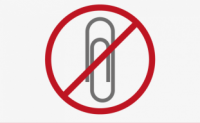
- Only download from sites you trust
Do not download software or media files from unknown websites. Go to verified, trusted sites if you want to download something. Most reputable websites will have markers of trust that you can recognize. Just look in the search bar to see if the site uses ‘https’ instead of ‘http.’ A shield or lock symbol may also show in the address bar to verify that the site is secure.
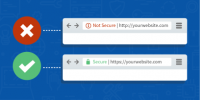
- Avoid giving out personal data
If you receive a call, text, or email from an untrusted source that asks for personal information, do not give it out. Cybercriminals planning a ransomware attack may try to gain personal data in advance of an attack. They can use this information in phishing emails to target you specifically. If you get contacted by a company asking for information, ignore the request, and contact the company independently to verify it is genuine.
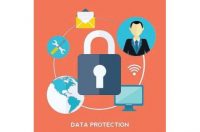
- Use mail server content scanning and filtering
Using content scanning and filtering on your mail servers is a smart way to prevent ransomware. This software reduces the likelihood of a spam email containing malware-infected attachments or links from reaching your inbox.
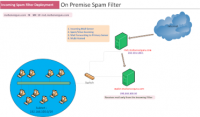
- Never use unfamiliar USBs
Never insert USBs or other removal storage devices into your computer if you do not know where they came from. Cybercriminals may have infected the device with ransomware and left it in a public space to lure you into using it.

- Keep your software and operating system updated
Keeping your software and operating system updated will help protect you from malware. Because when you run an update, you are ensuring that you benefit from the latest security patches, making it harder for cybercriminals to exploit vulnerabilities in your software.

- Avoid using public Wi-Fi (Use a VPN when using public Wi-Fi)
When you use public Wi-Fi, your computer system is more vulnerable to attack. To stay protected, avoid using public Wi-Fi for confidential transactions, or use a secure VPN.
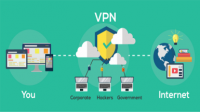
- Keep security software updated
To benefit from the highest level of protection that internet security software (Antivirus)has to offer, ensure you keep it updated. Each update will include the latest security patches and maximize ransomware prevention.

- Backup your data
Make sure to keep everything copied on an external hard drive but be sure not to leave it connected to your computer when not in use. If the hard drive is plugged in when you become a victim of a ransomware attack, this data will also be encrypted.


